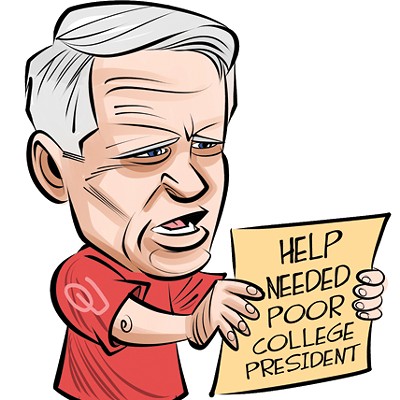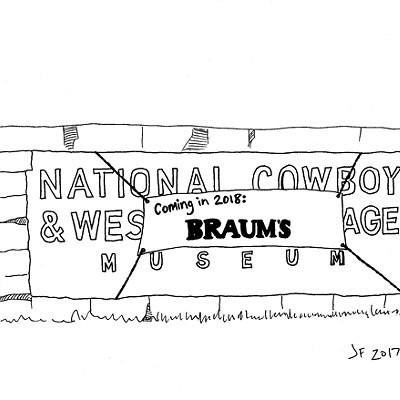The move by the city is the latest in an effort to raise $40 million in non-state dollars in order for state lawmakers to fund a matching $40 million that would complete the partially constructed cultural center.
Located on the south bank of the Oklahoma River west of Martin Luther King Jr. Boulevard, the center has been in limbo since last legislative session, when the state Senate declined to hear a measure that would have issued bonds to complete it.
The city’s promised donation — as well as other pledges of support — is contingent on the state Legislature passing a bond measure to fund its share of the costs, said City Manager Jim Couch. He added that the city expects to earn $4 million in new sales taxes annually as a result of visitor spending at what proponents said will be a major tourist draw.
The total cost of the project is estimated at $170 million. Before the most recent fund drive, the AICCM received $67 million in state funds, $16.3 million in federal money, $2 million from a grant and $4.7 million from tribes, as well as land valued at around $3 million from the city and funds of around $600,000.
After the state failed to issue bonds, the Native American Cultural and Educational Authority — the state umbrella agency overseeing the cultural center — began a public relations campaign to complete funding, hiring Oklahoma Centennial Commission Chairman Blake Wade as its executive director.
Wade said his group and legislative leaders came to an agreement that if half the $80 million required for completion could be raised through private sources, the state would pony up the other half.
In a March 27 presentation to City Council, Wade said about $15 million of the $40 million required came from tribes.
“We’re delighted everyone understands that if we don’t do this now, it’s never going to get done,” he said.
Ward 2 Councilman Ed Shadid said he supports the project, but voiced concern that there were no sure sources for the city’s contribution. If the city winds up having to incur debt to contribute, Shadid said, interest costs could drive that amount north of the intended donation.
“This would be unprecedented,” he said. “It’s a change in policy.”
Ward 8 Councilman Pat Ryan said the city had several options of where the money would come from. He said the council had to expedite the measure’s passage to assure state legislators that the privately raised funds had been secured.
“By doing this in a timely fashion and getting the state involved, we can essentially double the value of our support, because this will be matched by the state,” Ryan said.
Wade told council members the pledge could not be delayed because he hoped to present the figures to state leaders and see a measure voted on by the first week of April, before the Legislature focuses on more timeconsuming issues.
The measure passed unanimously. “I support this project and have peace of mind because our investment depends on the state’s participation,” Ward 7 Councilman Skip Kelly said. “This world-class cultural attraction will go far to honor Oklahoma’s American Indian heritage.”
Wade said, if the funding comes through, he expects the center to be complete by December 2014.











